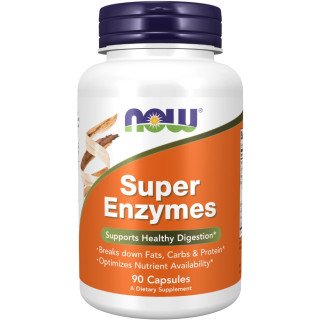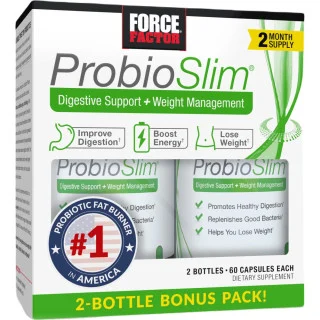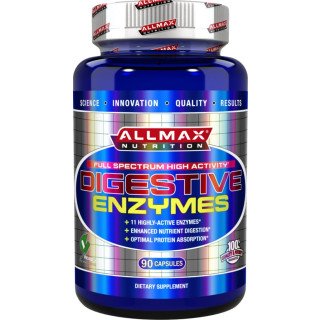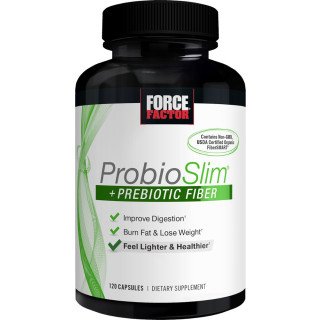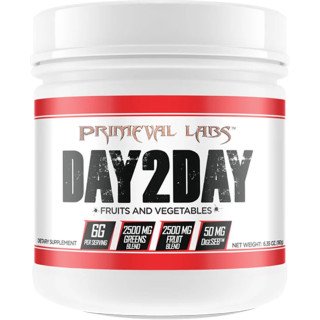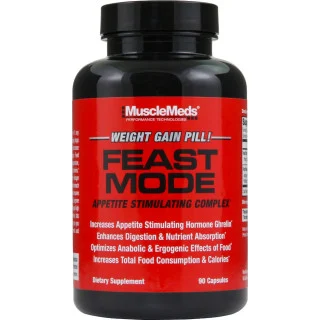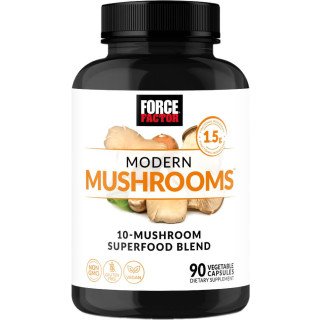Examine the world of gut health supplements, which include probiotics, prebiotic substances, enzymes and fiber, and their potential effects on...

DIGESTIVE HEALTH
DIGESTIVE HEALTH
Digestive health is the state of your digestive system and is critical for overall health and well-being.
Specialty
Ingredients
Specialty Ingredients
Goal OVERVIEW
Digestive health encompasses the effective functioning of the digestive system, involving processes like digestion, nutrient absorption, and waste elimination. It relies on organs like the stomach, pancreas, and intestines and a balanced gut microbiota. Regular bowel movements, gastrointestinal health, enzyme production, and the absence of digestive disorders contribute to overall well-being. Lifestyle factors such as a balanced diet, hydration, exercise, stress management, and sleep play vital roles in maintaining digestive health. Consulting a healthcare professional is advisable for persistent digestive concerns.
What You Should Know
Digestive health is pivotal for overall well-being, involving your digestive system’s optimal functioning. This system transforms food into vital nutrients for energy, growth, and repair while eliminating waste products. Elevating digestive health involves embracing a balanced diet rich in fiber-loaded fruits, veggies, and whole grains. Ample hydration, regular exercise, stress management through practices like yoga or meditation, and sufficient sleep (7-8 hours nightly) further bolster this goal. Make a point of discovering the essence of digestive wellness for a healthier, more vibrant life.
FOOD FOR THOUGHT
Anyone experiencing digestive problems, such as constipation, diarrhea, or bloating, should see a doctor to rule out any underlying medical conditions. Many over-the-counter and prescription medications can help to improve digestive health. Additionally, this website (GenMag.com) is filled with numerous specialty ingredients, such as probiotics, digestive enzymes, etc., that have been clinically validated and shown to promote digestive health. These are often natural and safe alternatives to medication.

SHAGANDHA® BY SABINSA
Shagandha® is a standardized powdered extract from the roots of Withania somnifera, commonly known as ashwagandha. Shagandha® offers various health benefits, including reducing stress, anxiety, and insomnia while improving cognitive function, reducing inflammation, and boosting the immune system. It is available in capsules, powders, and teas and is often used in herbal mixtures. Considered to be a breakthrough Adaptogenic.
Sponsored Content
FAQ
Fasting can have positive and potential adverse effects on digestive health, depending on the duration and type of fasting, as well as an individual’s health status and approach to fasting.
Here are some ways in which fasting can impact digestive health:
Potential Benefits:
- Gut Rest: Short-term fasting or intermittent fasting can give the digestive system a period of rest, allowing it to recover and potentially reduce inflammation.
- Gut Microbiota: Some research suggests that fasting could positively impact the diversity and composition of gut microbiota, which play a crucial role in digestive and overall health.
- Improved Insulin Sensitivity: Fasting might improve insulin sensitivity, positively affecting conditions like type 2 diabetes and metabolic health.
- Digestive Symptoms Relief: Fasting could provide relief from specific digestive symptoms, such as bloating, indigestion, and discomfort, for some individuals.
Potential Risks:
- Digestive Discomfort: Extended periods of fasting, especially without proper planning and hydration, can lead to digestive discomfort, constipation, or other digestive issues.
- Acid Reflux: Fasting may exacerbate acid reflux symptoms in some individuals due to increased stomach acidity during fasting periods.
- Nutrient Deficiencies: Prolonged fasting can lead to deficiencies in essential nutrients, which are crucial for overall health, including digestive health.
- Disruption of Eating Patterns: Drastic changes in eating patterns caused by fasting can disrupt the body’s natural digestive rhythm, potentially leading to irregular bowel movements.
- Gallbladder Issues: Fasting might increase the risk of gallstones in some individuals by reducing gallbladder contractions.
- Individual Variability: People respond differently to fasting, and what benefits one person might not be suitable for another. Pre-existing health conditions and individual factors play a role.
It’s essential to approach fasting cautiously and ensure it aligns with your health needs and goals. If you’re considering fasting for digestive health or any other reasons, it’s advisable to consult with a healthcare professional or registered dietitian. They can guide safe and appropriate fasting practices and help you make informed decisions based on your health status and dietary needs.
Promoting overall gut health involves a combination of a balanced diet rich in fiber, prebiotics, probiotics, and other nutrients, as well as a healthy lifestyle. While supplements can play a role in supporting gut health, they should be used as a complement to a well-rounded approach.
Here are some supplements that are commonly associated with promoting gut health:
1. Probiotics:
- Probiotics are live microorganisms that can provide health benefits when consumed adequately.
- They help maintain a balanced gut microbiota by introducing beneficial bacteria.
- Look for probiotic supplements that contain a variety of strains and target your specific needs.
2. Prebiotics:
- Prebiotics are non-digestible fibers that serve as food for beneficial gut bacteria.
- They help nourish and support the growth of beneficial bacteria in the gut.
- Prebiotic supplements typically contain fibers like inulin, chicory root, and certain types of resistant starch.
3. Fiber Supplements:
- Fiber is essential for digestive health and supports regular bowel movements.
- Soluble fiber, in particular, can help nourish gut bacteria and support a healthy gut environment.
- Psyllium husk, acacia fiber, and glucomannan are common fiber supplements.
4. Digestive Enzymes:
- Digestive enzyme supplements can help break down and digest food, potentially reducing digestive discomfort.
- They might be helpful for individuals with conditions that affect enzyme production, such as pancreatic disorders.
5. L-Glutamine:
- L-glutamine is an amino acid that supports the lining of the intestines and may help maintain gut barrier function.
- It can benefit individuals with certain digestive conditions, such as leaky gut.
6. Marshmallow Root and Slippery Elm:
- These herbs are known for their soothing effects on the digestive tract and might help alleviate symptoms of digestive discomfort.
7. Zinc Carnosine:
- Zinc carnosine is a compound that supports the health of the stomach lining and may promote gut integrity.
8. Ginger and Peppermint:
- These herbs have traditionally been used to soothe digestive issues and promote comfort.
It’s essential to approach supplements cautiously and consult a healthcare professional before adding them to your routine, especially if you have pre-existing health conditions or are taking medications.
Additionally, remember that promoting gut health involves a holistic approach that includes a balanced diet, regular exercise, stress management, and adequate sleep. Always prioritize dietary and lifestyle changes as the foundation of gut health, and use supplements as supportive tools when appropriate.
Digestive health plays a significant role in overall health and well-being. The digestive system, also known as the gastrointestinal (GI) tract, breaks down food, absorbs nutrients, and eliminates waste. It’s essential for efficient digestion and nutrient absorption and impacts various aspects of your body’s functions and overall health.
Here’s how digestive health affects overall health:
1. Nutrient Absorption:
- The digestive system breaks down food into nutrients your body can absorb and use for energy, growth, and repair. Healthy digestion ensures that essential nutrients like vitamins, minerals, proteins, carbohydrates, and fats are adequately absorbed.
2. Immune System Health:
- Many immune systems reside in the gut, including specialized immune cells and beneficial bacteria. A balanced gut microbiota is crucial for a robust immune response and protection against infections.
3. Mood and Mental Health:
- The gut-brain connection, known as the gut-brain axis, links the gut and the central nervous system. The gut produces neurotransmitters and communicates with the brain, influencing mood, emotions, and mental health. An imbalanced gut microbiota has been linked to conditions like anxiety, depression, and stress.
4. Inflammation and Chronic Diseases:
- An unhealthy gut can lead to chronic inflammation, which is linked to various health issues, including autoimmune diseases, cardiovascular disease, diabetes, and certain cancers.
5. Metabolism and Weight Management:
- The gut microbiota can impact metabolism and weight regulation. An imbalance in gut bacteria has been associated with obesity and metabolic syndrome.
6. Skin Health:
- Digestive health can influence skin conditions like acne, eczema, and psoriasis. An unhealthy gut may contribute to inflammation and skin problems.
7. Energy Levels and Vitality:
- Proper digestion and nutrient absorption give the body the energy needed for daily activities and overall vitality.
8. Nutrient Deficiencies:
- Digestive issues, such as malabsorption disorders or conditions affecting the gut lining, can lead to nutrient deficiencies that impact various bodily functions.
9. Chronic Digestive Disorders:
- Chronic digestive conditions like irritable bowel syndrome (IBS), Crohn’s disease, and celiac disease can significantly affect quality of life and overall health.
10. Detoxification and Waste Elimination:
- The digestive system plays a role in detoxifying the body by eliminating waste products and toxins.
11. Hormonal Balance:
- Gut health can influence hormonal balance and regulation. The gut-brain connection affects hormones related to appetite, metabolism, and mood.
Maintaining digestive health involves a balanced diet, proper hydration, regular physical activity, stress management, and adequate sleep. Consuming fiber-rich foods, prebiotics, and probiotics supports a healthy gut microbiota. It’s also important to address digestive symptoms promptly and seek medical attention if you experience persistent discomfort, pain, or irregularities. A healthy gut contributes to overall well-being and supports the optimal functioning of various systems within the body.
Related Videos
Articles
Gut health and anxiety: where belly bliss meets peace of mind! Gut health is said to play a crucial role...
Gain a deeper understanding of probiotics and the most effective foods that contain them, such as yogurt, kefir, and sauerkraut....










